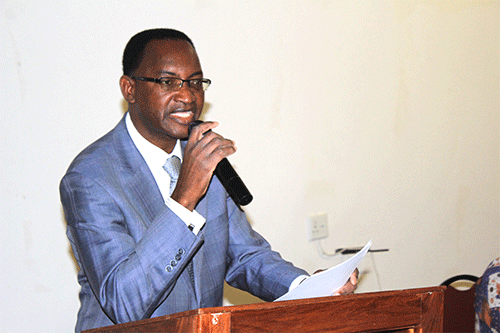Namibia’s anti-graft body is often criticised for being toothless, ineffective and not pursuing the proverbial “big fish”, but it boasts of 184 successful convictions since 2006.
Since 2006, the Anti-Corruption Commission (ACC) has submitted 730 dockets to the prosecutor general for decision. Of these, the PG decided to prosecute 553 cases, 311 have been finalised in court, while 242 are still pending.
This information is contained in a commission’s annual report for 2021/22, which was submitted to parliament on Tuesday.
From the 730 cases, 184 were convicted, 27 were temporarily withdrawn, 242 are still pending in court, five were referred to the Namibian police, 74 are pending a PG decision, while the prosecutor general declined to prosecute some 98 cases for various reasons.
During this financial year, seven cases were finalised in court, with all of them resulting in conviction.
Of note is a case in which 12 accused persons were sentenced to jail terms, ranging from one year to 18 years imprisonment.
A further two accused persons were sentenced to fines or jail terms, ranging from N$30 000 or six months of imprisonment to N$50 000 or 12 months imprisonment for offences related to corruption, fraud and money laundering, the commission said.
Furthermore, the commission received 110 cases during the said financial year representing a decrease of 10 cases, compared to 120 cases reported during the previous financial year.
“The nature of information for such a corruption complaint received determines whether the matter warrants investigation by ACC,” the commission said.
Of the 110 cases reported, 42 were found to be worth investigation, while 65 reports were declined for corruption investigation for various reasons, ranging from lack of substance, triviality, vague information and/or unfounded allegations.
Three reports were referred to other institutions for investigation, as they do not fall within the mandate of the ACC,” the commission said.
The commission said the ACC head office recorded a total of 57 reports, accounting for 52% of the reports during this financial year.
This, according to the commission, is attributed to the fact that most administrative and business activities are centred in the capital city, Windhoek, in the Khomas region.
The commission said a total of 22 cases were reported at the Erongo office, 18 were reported to the commission’s Oshana office and 13 cases were reported to the commission’s office in Otjozondjupa.
ACC director general Paulus Noa said the commission has increasingly stepped up its investigation efforts to finalise outstanding dockets.
“Many dockets are currently either in courts, pending trial, or with the prosecutor general, pending decision.
“Effective fight against corruption is the bedrock for consolidating good governance. It demands collective action by all sectors of society. We must, therefore, mount concerted efforts, hold hands collectively and confront corruption in unison,” Noa said in the report.
He said corruption causes untold damage with long-term effects on the country’s economy and it also undermines the values of democracy, rule of law and good governance.
“Often, the majority of the citizens suffer the consequences of corruption while benefitting only a few privileged individuals,” he added.


